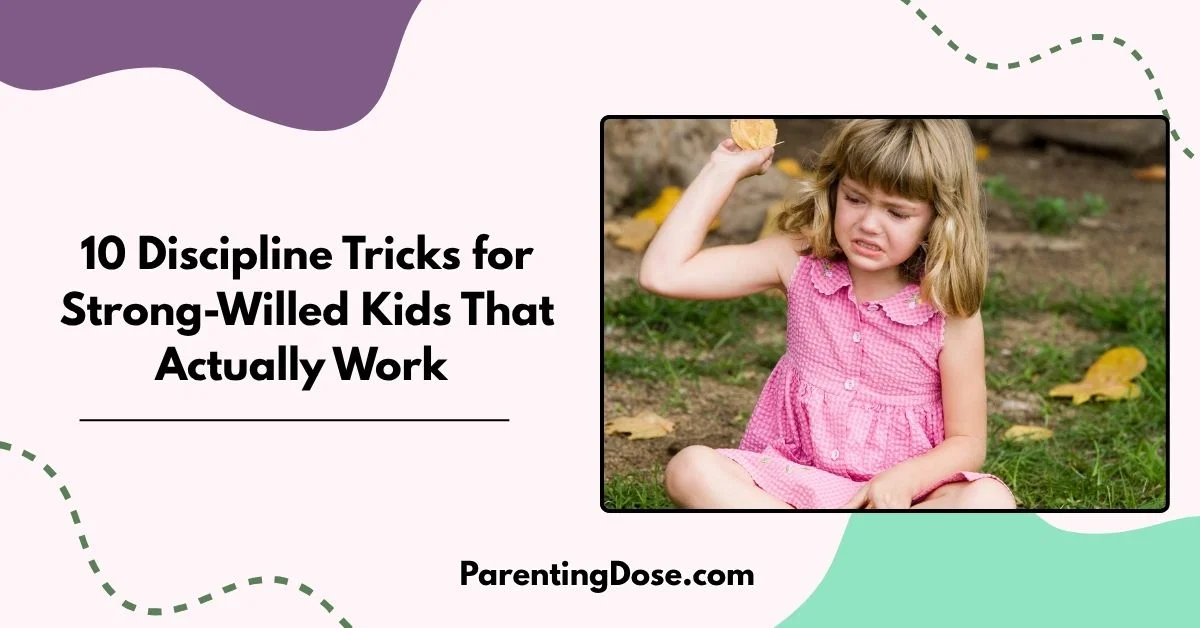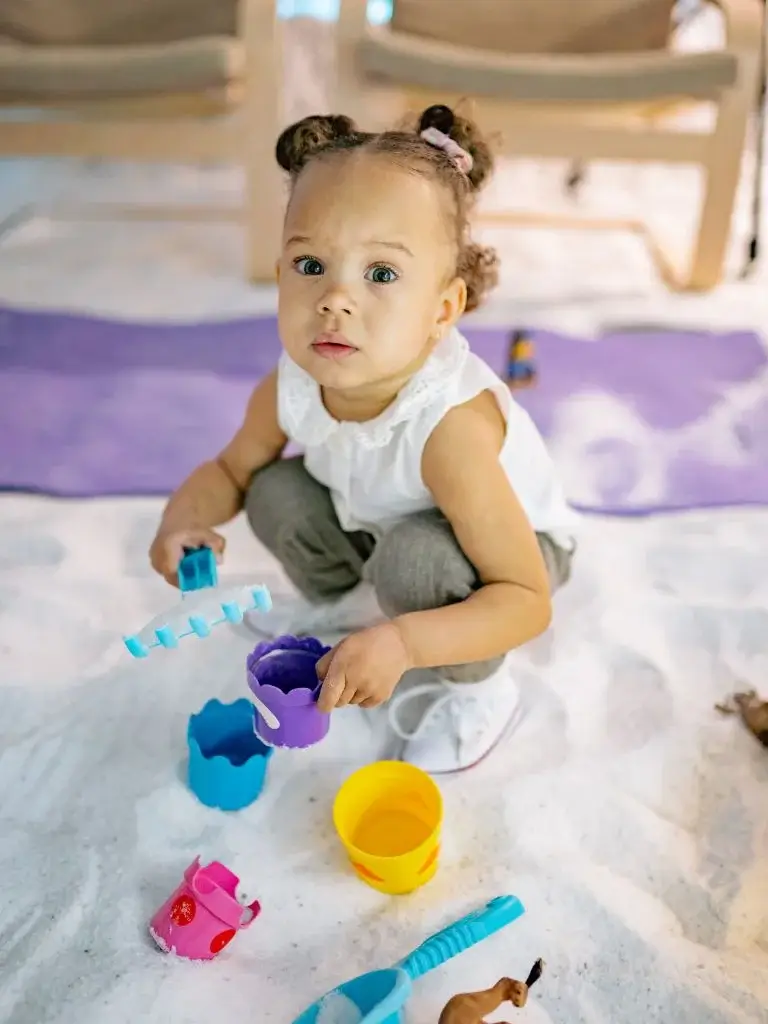If you’re a mom of a strong-willed child, you know the wild beauty of raising a kid who has opinions, emotions, and the stamina of a marathon runner when they decide today is the day they will not wear pants.
You’re not alone. And no, you’re not doing it wrong.
Let’s talk about the real, messy, frustrating, and beautiful journey of finding discipline tricks for strong-willed kids that don’t crush their spirit or yours.
What Is a Strong-Willed Child, Really?
You know you have one if your child:
- Argues like a mini lawyer
- Needs to understand the why before following a rule
- Has opinions. All the opinions.
- Gets more persistent the more you push back
- Can be unbelievably focused when it suits them
Strong-willed kids aren’t “bad” or “difficult” — they’re determined, sensitive, passionate, and fiercely independent. These traits can lead them to do amazing things one day. But for now? You just want to get out the door without a meltdown over sock seams.
1. Connect Before You Correct
This one changed my world.
Strong-willed kids need to feel seen and heard before they’ll even consider changing their behavior. If they feel bossed around or misunderstood, they dig in.
Instead of barking orders (trust me, I tried), I started saying:
“You’re really upset that your blocks fell over. That must be frustrating. Want a hug before we clean it up?”
It doesn’t mean you’re giving in. It means you’re tuning in. When they feel emotionally safe, they’re more likely to cooperate.
2. Offer Choices, Not Ultimatums
“Put on your shoes NOW or we’re not going!”
Yeah. That backfires with a strong-willed kid 100% of the time.
Try this instead:
“Do you want to wear your sparkly sneakers or the blue ones today?”
Giving two acceptable choices shifts the power without letting go of the boundary. They feel respected, and you avoid the battle.
Pro tip: Always offer the choices before the situation escalates.
3. Be the Calm in Their Storm
This is HARD. Like, deep-breath-in-the-pantry hard.
Strong-willed kids have big feelings, and they need an anchor. When you mirror their chaos, things spiral. But when you stay grounded (even if you’re faking it), you show them how to regulate.
It helps to remind yourself: They’re not giving me a hard time; they’re having a hard time.
And yes, sometimes that means letting them rage about the wrong-colored cup while you sip cold coffee and count to ten.
4. Use Natural Consequences Instead of Punishments
Traditional discipline often makes strong-willed kids more defiant. They don’t like being controlled.
Instead of, “If you don’t clean your toys, no TV!” try:
“When your toys are picked up, then we can watch Bluey.”
Natural consequences teach accountability without power struggles. It’s not about punishment; it’s about linking action to result.
And yes, they might still scream. But you’re teaching them how the world works — calmly, clearly, and consistently.
5. Make Room for Big Feelings (Without Letting Them Rule the Day)
Strong-willed kids feel things deeply. One moment they’re giddy about pancakes, the next they’re crying because the syrup “touched the eggs.”
Let them feel. Don’t rush to fix or hush. But also, keep boundaries firm.
“It’s okay to be upset. I’ll sit with you while you feel it. And when you’re ready, we can figure out what to do next.”
This builds emotional intelligence without letting meltdowns dictate the mood of the house.
6. Consistency Is Everything (Even When You’re So, So Tired)
I know. The exhaustion is real.
But strong-willed kids thrive on consistency. If you waffle on rules or consequences, they learn to push harder next time.
Create a few non-negotiables (like safety and kindness), and stick to them like glue. Then, allow flexibility on the little stuff.
And remember: consistency doesn’t mean perfection. It means being predictably you.
7. Celebrate the Wins — Even the Tiny Ones
Strong-willed kids want to do well. They need to know when they’re getting it right.
Catch them being kind. Praise them for calming down. Notice when they compromise.
“Hey, I saw how you took a deep breath instead of yelling when your sister grabbed your toy. That was amazing.”
It’s not about sticker charts or over-the-top rewards. It’s about reinforcing the behavior you do want to see.
8. Model the Behavior You Want to See
This one stings sometimes. But it’s true.
If we want our kids to speak respectfully, manage their emotions, and take responsibility, we have to show them how.
That means apologizing when we lose it. Talking about our feelings. Setting boundaries kindly.
You don’t have to be perfect. Just human. Just trying. And they notice.
9. Create Predictable Routines (and Stick to Them-ish)
Strong-willed kids feel safer with structure. Routines take away some of the unpredictability that can cause power struggles.
Morning checklist? Bedtime routine? Snack times?
Yes. Yes. And always yes to snacks.
Visual schedules or charts can help (especially for toddlers and preschoolers). When they know what to expect, they push back less.
10. Choose Your Battles
My daughter once wore Christmas pajamas to a July birthday party. And you know what? She had a blast.
Ask yourself:
- Is this about safety?
- Is this about respect?
- Or is this about my ego/control/fear of judgment?
If it’s not harming them or others, sometimes it’s okay to let it go.
Let the kid wear the mismatched socks. Life’s too short.
Final Thoughts from One Strong-Willed Mom Raising a Strong-Willed Kid
If your child tests limits, questions everything, and throws epic tantrums over invisible itches or the shape of their sandwich, you are not alone.
You are raising a world-changer.
It’s exhausting. It’s humbling. It will stretch you in ways you never imagined.
But it’s also a gift.
Because strong-willed kids grow up to be brave, passionate adults who aren’t afraid to speak up or stand up. They learn to harness their fire, with our help, our patience, and our endless, relentless love.
You’re doing an amazing job. Even when it doesn’t feel like it.










